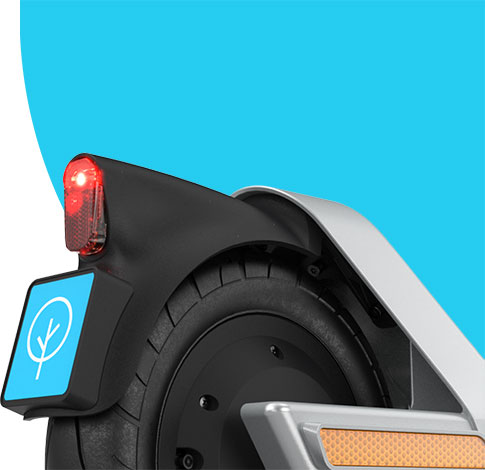The challenges we are currently facing can feel overwhelming.
With borders and businesses closed, travel restricted and tens of millions of global citizens forced to shelter in their homes, the personal, professional and economic hardships of this once in a lifetime global pandemic are becoming clearer every day.
The team at Bird is not immune to these realities. We’ve increased vehicle sanitization and, where necessary, paused micromobility operations in order to help riders, teammates and the general public adhere to local and state mandated restrictions as we attempt to flatten the curve. We’re also working with communities to support local businesses, give free rides to medical personnel and recognize local heroes who are providing the essential services necessary to see us through this crisis.
But simply weathering the storm is not enough. Along with local leaders, we must look to the not-too-distant future in order to help cities proactively prepare for a world beyond COVID-19. Electric bikes and scooters will play an important role in enabling communities to recover, rebuild and get moving again in the wake of this unprecedented global pandemic. History tells us why.
This is not the first time that a public health crisis has had a direct and demonstrable impact on the emerging micromobility industry. In the early aughts, when the SARS outbreak was sweeping through China, e-bike sales surged as riders looked for alternatives to public transit that allowed for social distancing. By 2005, 10 million electric assist bikes were sold throughout the country, up from just 40,000 in 1998. That number has since grown another 50% and continues to climb.
“Micromobility as we know it today is a descendent of the e-bike surge in the early 2000s,” Chris Cherry wrote earlier this month. He’s a professor at the University of Tennessee and member of the Institute of Transportation Engineers.
“That surge was aided by a demand for large scale mobility that still allowed for SARS-related personal distancing. Shared micromobility today, as a part of a diverse transit network, can help enable resiliency in the transportation system while limiting personal contact.”
Nearly two decades after SARS, local bikeshare programs in major US cities are reporting similar trends in the wake of COVID-19. According to the New York Times, ridership in New York and Chicago increased as much as 67% during the first two weeks of March versus the same period last year. This jump corresponds with a sharp, temporary drop in transit ridership as residents and commuters attempt to stay mobile while avoiding crowded trains and buses.
Our own data both supports and expands upon this narrative. In Paris, when recent transit union strikes nearly brought the entirety of the city’s metro system to a halt, residents turned to electric scooters to fill in the resulting transportation gaps. Micromobility ridership increased by nearly 300% during this period, demonstrating the importance of developing urban transit networks that are rich in redundancies.
We also know that electric scooters and bikes benefit local economies in a variety of ways. Survey data indicate that nearly 60% of Bird rides across the US connect to local shops and restaurants, bringing customers and small businesses together. Micromobility also increases access to employment opportunities by as much as 40% in conjunction with public transit. This can provide a significant boon to city residents impacted economically by recent travel restrictions and shelter-in-place guidelines.
As we work together to mitigate the risks posed by this global pandemic, Bird will also help cities prepare for the unique transportation needs that will arrive in the weeks and months ahead. From enhanced vehicles and safety features to free consultation planning services for officials and transit agencies, the goal is simple: help citizens feel confident in their ability to move safely about their communities while strengthening the overall transportation network that connects them together.
These are understandably worrying times. Working hand in hand with cities and local organizations, however, micromobility providers can and will help communities recover, and help riders regain mobility, in the wake of the most serious global pandemic in recent memory.

Rebecca Hahn is the Chief Corporate Social Responsibility Officer at Bird.
Her role puts her at the confluence of community engagement and storytelling, leading the company’s global city engagement, government partnerships, policy, communications, marketing and brand teams.

